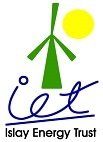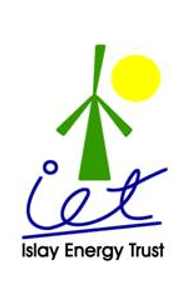Community Benefit Fund: Press release
Islay's community wind project will be a trailblazer in Scotland
The Islay Community Wind Project is at the forefront of a growing trend in social investment. Islay is set to join a group of Scottish island communities including Gigha, Mull, Tiree, Barra, South Uist and Westray, all of which are establishing a more sustainable, socio-economic future through the exploitation of renewable energy resources using local enterprise. Community projects on some of these islands are already generating hundreds of thousands of pounds of profits every year. What makes the Islay Project different is that it will be one of the first community-owned wind projects in Scotland to be part-financed through a community benefit society share offer.
On the 14th January, the Islay Energy Community Benefit Society (IECBS) will launch its share offer with the objective of raising up to £750,000 to finance a 330kW wind turbine. When operational, the Project is expected to yield financial benefits for the community of £60-80,000 p.a., or up to £2.5million over the 20-year life of the project (allowing for inflation). The money will be re-invested in the community: developing other renewables projects, providing relief from fuel poverty and awarding grants to local voluntary and charitable organisations. Investors (priority will be given to residents of Islay, Jura and Colonsay) should receive annual interest of 4-5% on their shares.
Jenni Minto, Secretary of IECBS, said: “We have now reached a significant milestone after 5 years of determined, patient and resilient development work by the Islay Energy Trust (IET). The share offer is an exciting opportunity for the many people who know and love the islands of Islay, Jura and Colonsay to make a social investment in a locally-owned project which will generate benefits for these communities. The more money raised through the share offer, the less that will have to be borrowed from the banks.”
Other European countries have a well developed tradition of community-owned enterprises, particularly in the renewable energy sector. In Denmark and Germany, 86% and 56% respectively of electricity generation from wind comes from locally and community-owned enterprises. In Scotland it is a mere 3%, but increasing with funding help from the Scottish Government, Highlands and Islands Enterprise, Big Lottery and others, and technical assistance from Community Energy Scotland. Above all, it is the initiative and enterprise generated by members of local communities that enable local economies to keep a greater share of benefits from the exploitation of renewable resources, and thus contribute to a more sustainable future, in particular for fragile island economies.

